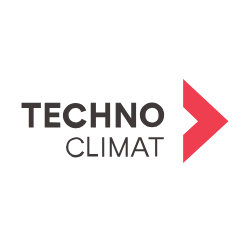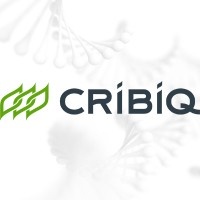
Ville de La Tuque — RRF stream 2 - Support for local and regional development skills
At a glance
- Maximum amount : 25,000 $
- Up to 50% of project cost
- Unspecified
- Agriculture, forestry, fishing and hunting
- Manufacturing
- Retail trade
- Professional, scientific and technical services
- Arts, entertainment and recreation
- Accommodation and food services
- La Tuque
- Non-profit
- Public or Parapublic institution
- For-profit business
- Sole proprietorship
- Social economy enterprise
- Non-financial cooperative
- All revenue ranges
- All organization sizes
- Rural or Northern Residents
- Startups
- Culture and Arts
- Environment
- Economic, Social and Community Development
- Housing
- Employment and Training
- Rural / Remote communities
- Business owners / entrepreneurs
- Nonprofits / charities
- Community leaders
- All structures
- Local
- Regional
Overview
The FRR program supports local and regional development by providing a maximum funding amount of up to $25,000 per enterprise, with a focus on activities such as entrepreneurship promotion, rural development, and support for municipal collaborations. Eligible expenses include capital investments, technology acquisition, and professional fees, aiming to enhance community projects and economic growth initiatives.
Activities funded
The Ville de La Tuque RRF stream 2 grant aims to bolster local and regional development capacities through various targeted initiatives. Eligible projects promote community empowerment, entrepreneurship, and intergovernmental collaboration for sustainable territorial development.
- Planning and development mandates to enhance territorial management and organization.
- Providing professional expertise or establishing shared services in local municipalities (social, cultural, tourism, environmental, technological, etc.).
- Promotion and support of entrepreneurship and business initiatives.
- Mobilizing communities and supporting structuring projects that improve quality of life in social, cultural, economic, or environmental domains.
- Establishing, financing, and implementing sectoral development agreements with governmental departments or other partners.
- Support for rural development initiatives.
Eligibility
Eligibility for this grant is determined by specific requirements related to the applicant's business status and compliance with local regulations.
- The enterprise must have a civic address relating to its operations within the agglomeration territory and actively conduct activities there.
- Enterprises must be legally constituted and classified as a "service de proximité" based on Section 3 or operate in primary, secondary, or tourism industries.
- The enterprise must not be involved in litigation, judicial procedures, or listed in the Register of ineligible businesses.
- The enterprise must be compliant with all prevailing laws and regulations and not be in payment default to municipalities that form the agglomeration.
- Projects must have a minimum cash contribution of 10% of eligible expenses.
- Projects should not displace employment due to excessive competition in the relevant economic sector.
- Entrepreneurs must demonstrate relevant experience and/or training for the project, as determined by SDÉF.
- Entrepreneurs must cooperate with SDÉF by providing requested information needed for business plan assembly or other dossiers.
- The entrepreneur has a maximum of three months, once the financing decision is adopted, to fulfill specified contract conditions.
Who is eligible?
The eligibility criteria for this grant specify that any organization, except for private companies in the financial sector and financial cooperatives, is eligible for technical assistance or a grant. The funding may be allocated to various measures like planning and development mandates, support for local municipalities, entrepreneurship promotion, and rural development support.
Who is not eligible
This grant excludes certain types of businesses from eligibility based on their primary activities and status. These exclusions aim to focus support on particular sectors that align with the development and policy goals.
- Companies not considered as Services of proximity.
- Projects with religious, political, or sexual content.
- Financial services companies.
- Rooming houses.
- Combat sports and racing industries.
- Dating agencies.
- Businesses dealing in used goods.
- Certain alternative medicine practices.
- Gambling-related businesses.
- Companies involved in production or sale of tobacco, drugs, or weapons.
Eligible expenses
The grant covers specific expenses related to capital, technology acquisition, and intended operational funding for startups, expansions, or modernizations.
- Capital expenses such as land, buildings, equipment, furnishings, machinery, rolling stock, and incorporation fees.
- Rental and installation of equipment.
- Acquisition and implementation of technologies, software, patents, and professional fees.
- Working capital strictly related to the operations of the business calculated for the first year of startup, succession, or expansion/modernization.
Eligible geographic areas
This grant is available to companies located within the territory of the agglomeration of La Tuque. The geographical area is defined by its proximity requirements to ensure service continuity for the local population.
- Companies with an address indicating operations within the agglomeration of La Tuque.
Selection criteria
The evaluation and selection of projects for this grant are based on specific criteria outlined to ensure the proposed projects align with the strategic objectives of supporting local and regional development.
- Strategic importance of the project for local and regional development.
- Contribution to economic stability and growth in the region.
- Potential to sustain or create employment opportunities.
- Alignment with local municipal priorities and policies.
- Feasibility and sustainability of the proposed project.
- Innovative approaches included in the project plan.
How to apply
Consultation of MRCs
- Identify the MRC responsible for your territory by consulting the Municipalities Directory.
- Contact the MRC to obtain specific information regarding intervention priorities and support policies.
Development of the request
- Prepare a detailed project proposal aligned with the priorities identified by the MRC.
- Gather the necessary supporting documents, such as the financing plan and the description of the expected outcomes.
Submission of the application
- Submit the application file directly to the MRC responsible for your region.
- Ensure that all required documents are included in the file before submission.
Follow-up on the request
- Wait for the confirmation of receipt of the request by the MRC.
- Provide any additional information if requested by the MRC during the assessment of the file.
Additional information
Here are additional relevant details for this grant:
- There is no fee to submit an application for the grant.
- The decision-making process involves proposals being reviewed by a consultative investment committee before recommendations are made to the Council of Agglomeration.
- In cases where the grant conditions are not met, the provider will employ legal procedures to recover funds.
- Details of successful projects, including the amount awarded, are publicly disclosed on various platforms.
- Applicants, if successful, must sign a funding agreement and adhere to all specified disbursement conditions before any funds are released.
- Projects cannot be resubmitted unless substantial changes are made and reassessed by the SDÉF.
Frequently Asked Questions about the Ville de La Tuque — RRF stream 2 - Support for local and regional development skills Program
What is the Ville de La Tuque — RRF stream 2 - Support for local and regional development skills?
How much funding can be received?
Who is eligible for the Ville de La Tuque — RRF stream 2 - Support for local and regional development skills program?
What expenses are eligible under Ville de La Tuque — RRF stream 2 - Support for local and regional development skills?
Where is the Ville de La Tuque — RRF stream 2 - Support for local and regional development skills available?
Is the Ville de La Tuque — RRF stream 2 - Support for local and regional development skills a grant, loan, or tax credit?
Who are the financial supporters of the Ville de La Tuque — RRF stream 2 - Support for local and regional development skills?
More programs like this

ÉcoPerformance — Recommissioning of building mechanical systems
Gouvernement du Québec
Financing to respond to the offensive of new tariffs and for initiatives for resilient and exporting companies (FRONTIERE)
Investissement Québec (IQ)
Innovative Projects Program
Hydro-Québec
Technoclimat
Environnement Québec (MELCC)
Call for innovation projects in artificial intelligence and quantum technologies – collaborative industrial research and support for entrepreneurship
Gouvernement du Québec
Wood Innovation Program — Component 2
Gouvernement du Québec
Wood Innovation Program - component 1
Gouvernement du Québec
Ambition-Compétences — Training for resilience and competitiveness in employment
Commission des partenaires du marché du travail (CPMT)
Regions and Rurality Fund (RRF) - Component 1 - Support for regional outreach
Gouvernement du Québec